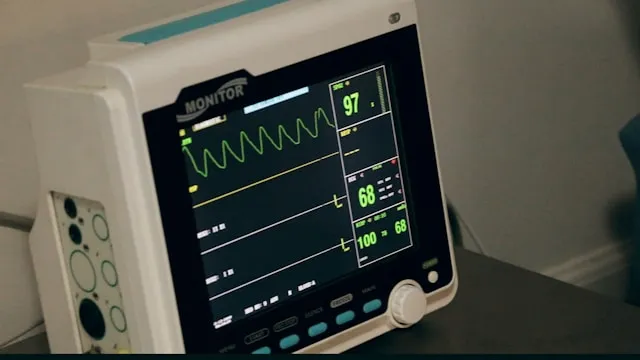Aortic Valve Replacement is an effective surgery for the treatment of aortic stenosis - a medical condition in which aortic valve is unable to open properly, thereby preventing flow of blood to the body. However, an open heart surgery places tremendous strain on the body, especially for patients above 60 years of age. For this reason, TAVI (Transcatheter aortic valve implantation) has gained popularity among doctors in recent years.
An Interventional Cardiologist since 1998, Dr. Vivek Gupta was earlier associated with Hospital Charles Nicolle Rouen in France. An experience of 22 years in performing procedures like Coronary Angiography, Coronary Angioplasty, Percutaneous Coronary Intervention, Pacemaker Surgery, Devices for Heart Failure, Trans Aortic Valve Implantation (TAVI) TAVI, makes Dr.Gupta a sort after specialist in the field, especially since there aren't many doctors who specialize in these in India. Dr. Vivek has also been trained under Prof Dr. Alain Cribier, who is known as the father of TAVI.
Who is a good candidate for TAVI?
Transcatheter aortic valve implantation (TAVI) is a boon for patients who aren't healthy enough for surgery. Some of these candidates include elderly patients with health conditions like nephropathy, lung diseases or people who are either living with other Coronary Artery Diseases or have already undergone CABG. People who have suffered a stroke are also recommended this procedure.How is the Procedure Performed?
TAVI is a minimally invasive procedure to repair the aortic valve functioning without removing the old, damaged valve. Instead, bioprosthetic valve is implanted as a replacement valve. The cardiologist will access the heart through a small incision in the groin area and into the femoral artery or through a tiny incision in the chest. A hollow tube, called catheter, is inserted through the incision and guided to the heart. After carefully positioning the catheter, the replacement valve is passed through it. This valve pushes away the damaged vessel and uses it as an anchor to sit in its place. Once the doctor is sure the valve is securely in place, the catheter is withdrawn. This procedure is usually done by administering local anesthesia and typically takes between 45 to 60 minutes.What are the advantages?
The primary advantages of this non-surgical procedure are that the heart doesn't need to be stopped during the procedure, so a heart-lung (bypass) machine doesn't need to be used. The procedure also avoids making a large cut (incision) in the chest. Other advantages of TAVI are:- Heart is not stopped during the procedure, so a heart-lung (bypass) machine doesn't need to be used
- No prolonged anticoagulation is required and normal heart function is resumed in no time
- If a patient needs a stent, TAVI allows the doctor to safely implant that as well
- Patient is discharged from hospital within 3 to 4 days
- Infection
- Tearing of Blood vessel
- Arrhythmia
- Kidney disease
- Post-Operative Valve Complications
- Stroke/ Heart attack
- Bleeding
[caption align="alignleft" width="170"] Dr. Vivek Gupta
Dr. Vivek Gupta
Senior Consultant - Interventional Cardiology
Indraprastha Apollo Hospitals, New Delhi[/caption]
 Dr. Vivek Gupta
Dr. Vivek GuptaSenior Consultant - Interventional Cardiology
Indraprastha Apollo Hospitals, New Delhi[/caption]
This write-up was contributed to Credihealth by:
Dr. Vivek Gupta Senior Consultant - Interventional Cardiology (Indraprastha Apollo Hospital, New Delhi)

Reviewed by







